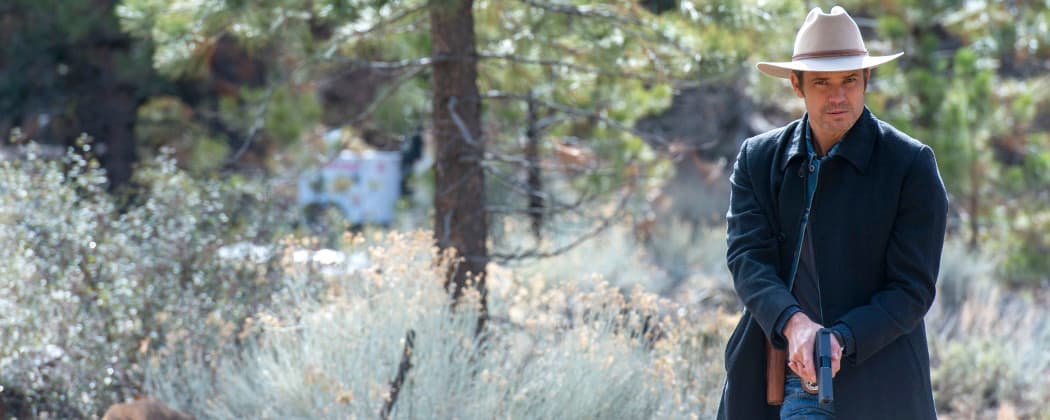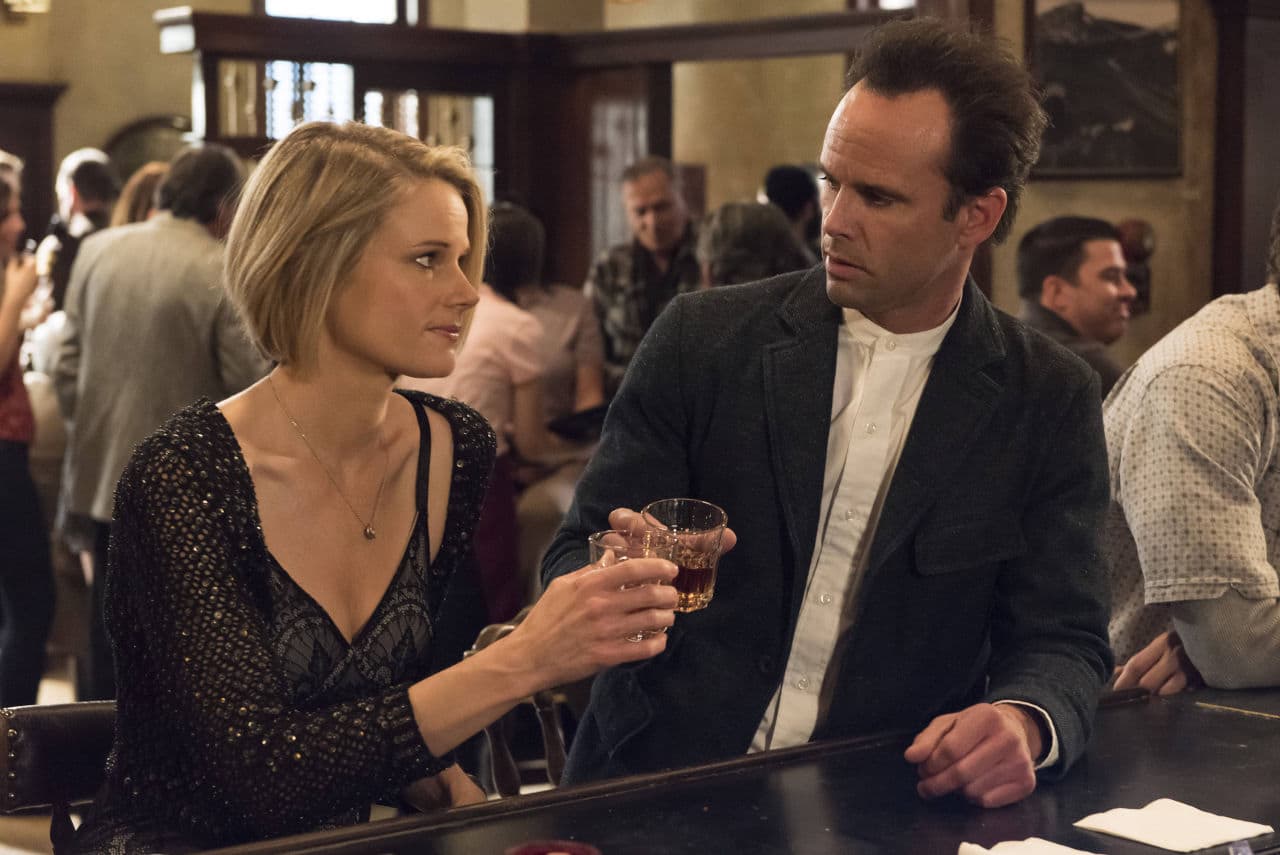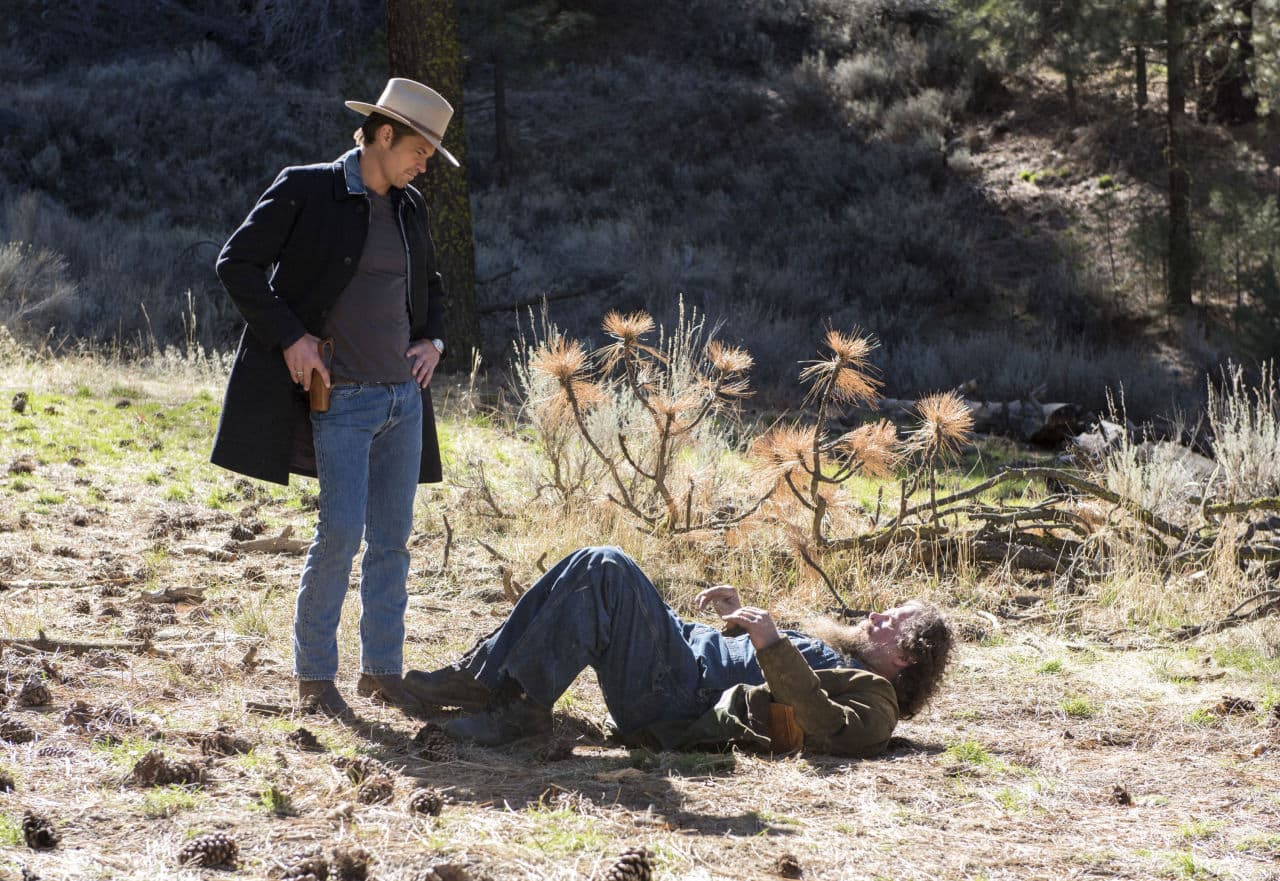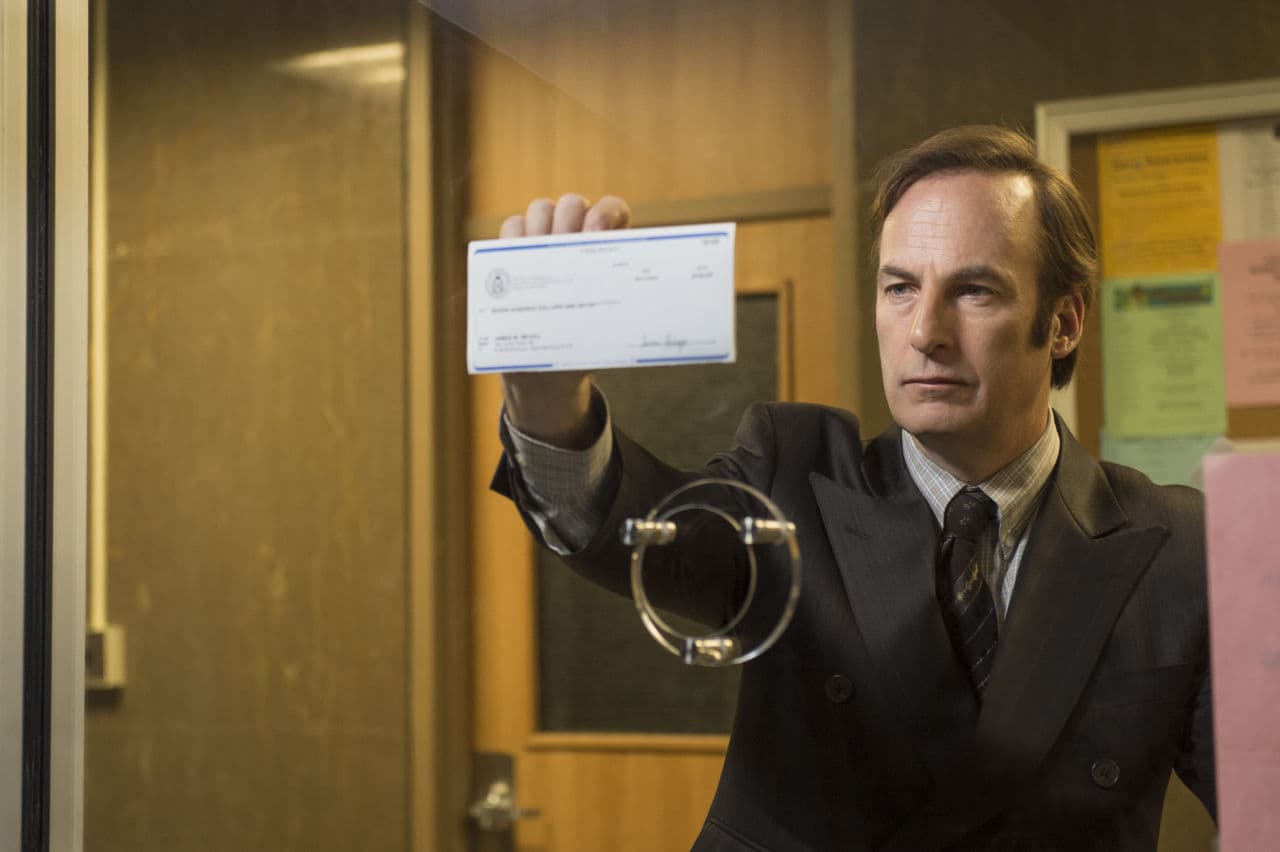Advertisement
Farewell To The Fabulous 'Justified'; 'Saul,' We'll See You Next Year

Given that there are two more episodes left of “Justified” before it ends for good and one more episode remaining of the remarkable first season of “Better Call Saul,” I might be jumping the gun opining about these shows. But if there was ever a show to figuratively jump the gun on, it’s “Justified,” and opining is a word that the one-time coal miner, neo-Nazi, bank robber, preacher, drug smuggler, Harlan crime-kingpin and silver-tongued devil, Boyd Crowder, would most likely take a great deal of satisfaction saying simply to hear it roll off his tongue.
“Justified,” as many of you already know, was originally developed from an Elmore Leonard short story, “Fire in the Hole.” I’ve been a fan of this show from the beginning even though the writing during the first season was often uneven. What hooked me right away, though, was Timothy Olyphant’s dynamic performance as marshal Raylan Givens, which should come as no surprise to anyone who watched him on the HBO series “Deadwood.” By season two, both the writing and vision for the show sharpened, allowing “Justified” to develop into one of TV’s richest and most satisfying crime dramas. As with the earlier FX crime drama, “The Shield,” each season began to have its own season-long story arc, all the while building onto the overall series arc. Now that the series is coming to an end, the show’s arc is building to where it’s been heading all along—a final showdown between Raylan, Boyd and Ava.

It was only season four when Boyd and Ava were house hunting and dreaming of a future. How things have changed. Season five had Ava in jail (and later in prison), while Boyd was doing what he could to protect her and get her freed until he decided it was just too difficult. He then, in effect, washed his hands of her, and it didn’t take Ava long to become painfully aware of how she’d been abandoned.
All this brings us to the sixth and final season. Ava is out of prison and acting as a confidential informant (snitch) for Raylan so he can build a RICO case against Boyd. If she doesn’t deliver, she’s heading back to prison. As far as Raylan’s concerned, sending Boyd to prison is the one last piece of business he needs to finish before slamming the door shut on Harlan for good and heading off to Florida so he can reunite with his ex-wife and new baby daughter. So how are things going? Ava, caught between a rock and a hard place, has betrayed Boyd and has taken to the Kentucky hills with the $10 million Boyd had stolen, leaving Boyd for dead. Boyd, for his part, survived Ava’s gunshot with only a broken collarbone, and after a hospital escape, is hot on Ava’s trail. And Raylan is after both, which promises plenty of fireworks for the last two episodes.

Over the course of six seasons, “Justified” has given us more than its share of local good ole boy lowlifes, rednecks and criminals, as well as the Dixie mafia, heavy hitters from Detroit, drug gangs from Mexico, and of course, Raylan Givens and the rest of the members of the Louisville marshal’s office. As fascinating as all of Boyd’s schemes and Raylan’s doggedness in putting bad guys away (or in the ground) have been, what has made “Justified” so compelling is the way it intertwines personal histories and longstanding feuds throughout its stories. With two episodes remaining, we’ve got at least one more gunfight between Raylan and a particularly odious character, then the final showdown, which is highly unlikely to leave all three main characters alive. Then the curtain will drop forever on Harlan County and the fascinating mythologies this show created.
Fifteen-hundred miles southwest of Harlan, Kentucky, is Albuquerque, New Mexico, the location of “Better Call Saul.” I had my doubts when I first heard about this “Breaking Bad” prequel, especially when I read a quote a year ago from creator Vince Gilligan saying he was still trying to figure out what the show would be. I was wrong. I’m also pretty sure Mr. Gilligan was being coy, and that when he gave that interview he already had a strong vision of what “Better Call Saul” would be.
So does the show feel like a continuation of “Breaking Bad”? No. While the show feels like it exists within the “Bad” universe, especially with Bob Odenkirk and Jonathan Banks reprising their roles as Saul Goodman and Mike Ehrmantraut, and the psycho Tucco appearing for two episodes, it definitely has its own energy and vibe. What also makes it very different than “Breaking Bad” is that we know from the start how it’s going to end up. The fun is really seeing why it ends up that way.

When “Better Call Saul” starts, Saul Goodman isn’t even the character’s name. It’s Jimmy McGill. And instead of the shady lawyer from “Breaking Bad” who helps Walter White launder drug money, he’s a struggling, hustling lawyer who is driven not only to succeed but to win the approval of his older brother Chuck played by the always wonderful Michael McKean. In the season’s penultimate episode, we saw what might’ve been this TV season’s most dramatic scenes, as well as the exact moment where Jimmy becomes Saul (maybe that’s what makes this scene so powerful — we know how much is at stake). It’s a scene of betrayal and of an older sibling who just can’t let go of past perceptions and his own exalted sense of self. It’s a devastating scene, one which we as viewers know will send Jimmy/Saul down a path of ultimate ruin.
It’s too early to tell whether “Better Call Saul” will have the same resonance and power of “Breaking Bad.” But what we do know so far is that “Saul” is every bit as compellingly watchable as the first season of “Breaking Bad.” And I’ll put the penultimate episode “Pimento” up against the best “Breaking Bad” had in its first season. In other words, if you haven’t watched this show yet, get on it so you can be caught up for its second season.
Dave Zeltserman lives in Needham and is an award-winning noir, mystery and horror writer. His latest book, about demon hunting in Newton, “The Boy Who Killed Demons,” is out now. Two of his crime novels, “Small Crimes” and “Outsourced,” are currently in film development and both are scheduled to go into production this summer.